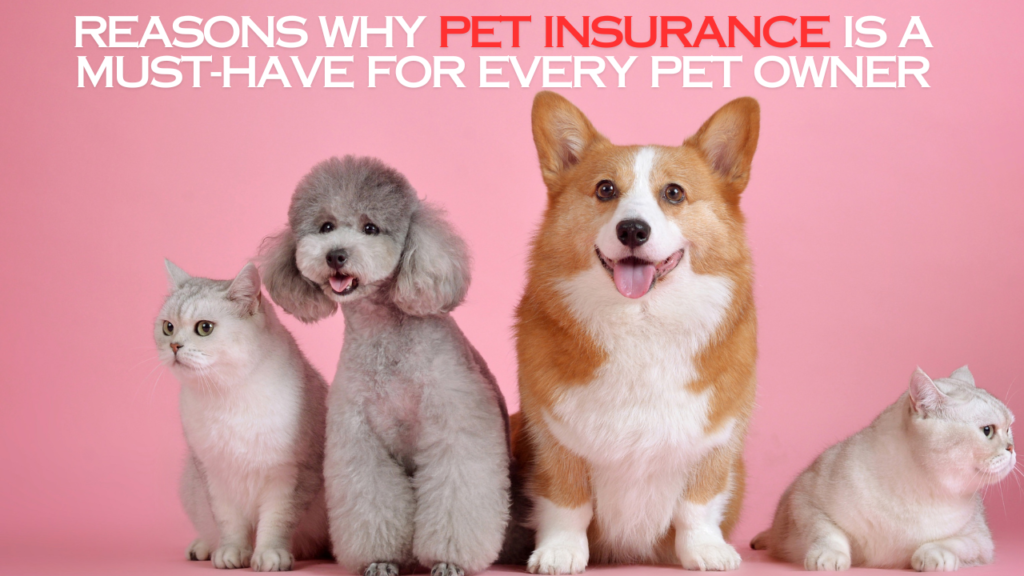Reasons Why Pet Insurance Is a Must-Have for Every Pet Owner | Blog | Vargas & Vargas Insurance

Pet lovers have you ever thought about getting insurance for your furry friend? It might sound weird, but it’s actually super important. Let’s talk about why pet insurance is becoming a big deal for many families.
Imagine if your dog or cat got sick suddenly. Vet bills can be really expensive! Did you know that some people can’t even afford to take their pets to the vet when they need to? That’s pretty sad, right? This is where pet insurance comes in to save the day!
What Does Pet Insurance Do?
Pet insurance is like a superhero for your pet’s health. It helps pay for lots of different things:
- Big health problems: If your pet gets really sick or hurt, insurance can help pay for things like surgery or special tests.
- Accidents: Sometimes pets do silly things and get hurt. Insurance can help if your pet eats something they shouldn’t or gets hurt while playing.
- Special breed problems: Some types of dogs and cats are more likely to get certain health issues. Insurance can help with these too!
How Much Does It Cost?
The price of pet insurance can be different for everyone. It depends on things like:
- What kind of pet you have (dogs usually cost more than cats)
- How old your pet is
- What breed your pet is
- How much of the vet bill you want the insurance to pay
Think of it like buying a jacket. A big, fancy jacket for a grown-up will cost more than a small, simple jacket for a kid. Pet insurance works kind of the same way!
Choosing the Right Insurance
Picking the best insurance for your pet is like choosing the perfect toy. You want to make sure it’s just right! Here are some things to think about:
- What does your pet need? A playful puppy might need different coverage than a calm, older cat.
- Look at different companies: Just like when you’re shopping for a new game, it’s good to look at different options.
- Read the rules carefully: Make sure you understand what the insurance will and won’t pay for.
Why It’s Worth It
Having pet insurance can be really helpful. It means you don’t have to worry about big vet bills if your pet gets sick or hurt. You can focus on helping your furry friend feel better instead of worrying about money.
Here’s a cool fact: treating a dog for something as simple as an upset tummy can cost around $300! That’s about the same as six months of insurance for some dogs. So, if you have insurance, you’re prepared for these surprise costs.
Pet insurance isn’t just about money, though. It’s about making sure your pet can always get the help they need. It’s like having a safety net for your furry family member.
Remember, every pet is different. Some might need more health care than others. But no matter what kind of pet you have, insurance can give you peace of mind. It means you’re ready for anything that might happen.
If you’re curious about pet insurance and want to learn more, you can always ask a grown-up to help you look into it. There are lots of different options out there, and finding the right one can make a big difference for your pet.
In the end, pet insurance is all about taking the best care of your furry friends. It’s a way to make sure they can always get the help they need, no matter what happens. And that’s pretty awesome, don’t you think?
So next time you’re cuddling with your pet, remember that there are ways to keep them safe and healthy, even when unexpected things happen. Pet insurance might just be the superhero your furry friend needs!
Getting the Right Help for Your Pet Insurance
When you’re looking for pet insurance, it can be a bit confusing with all the choices out there. That’s where a local independent insurance broker like Vargas & Vargas Insurance can be your best friend! We are experts who can help you find the perfect insurance for your pet. We know all about different insurance options and can explain everything in a way that’s easy to understand, because we are pet owners also. Plus, we can help you get the best deal for your furry friend. If you want to learn more about pet insurance or need help choosing the right plan, you can call the friendly team at Vargas & Vargas Insurance.
We are always ready to help and you can reach us at 617-298-0655, or click here to start on an insurance quote . Having an expert on your side can make finding the right pet insurance much easier and ensure your pet gets the best protection possible!


